“A War Led by Lies Shattered My 30-Year Trust in the US Mainstream Media”
The China Academy:
Let’s begin with the year 2013. Earlier that year you published the book Our America Pravda. And later that year you launched the website – The Unz Review. What led you to make the judgment that the mainstream media is concealing and distorting the most important issues in American society and keeping them out of the public discourse? What motivated you to establish the website?
Ron Unz:
One thing that really was a turning point in my perspective, was the Iraq War about a decade earlier because there had been absolutely universal coverage in the American mainstream media that Saddam Hussein had weapons of mass destruction, that he was developing nuclear weapons, that he had biological weapons. It was just unquestioned.

It was just absolutely shocking to discover that none of that coverage was true and that many of the key figures in the American government had been aware that it was false. And probably many members of the media knew it was false as well, but they still reported complete falsehoods, which led us to the Iraq War.
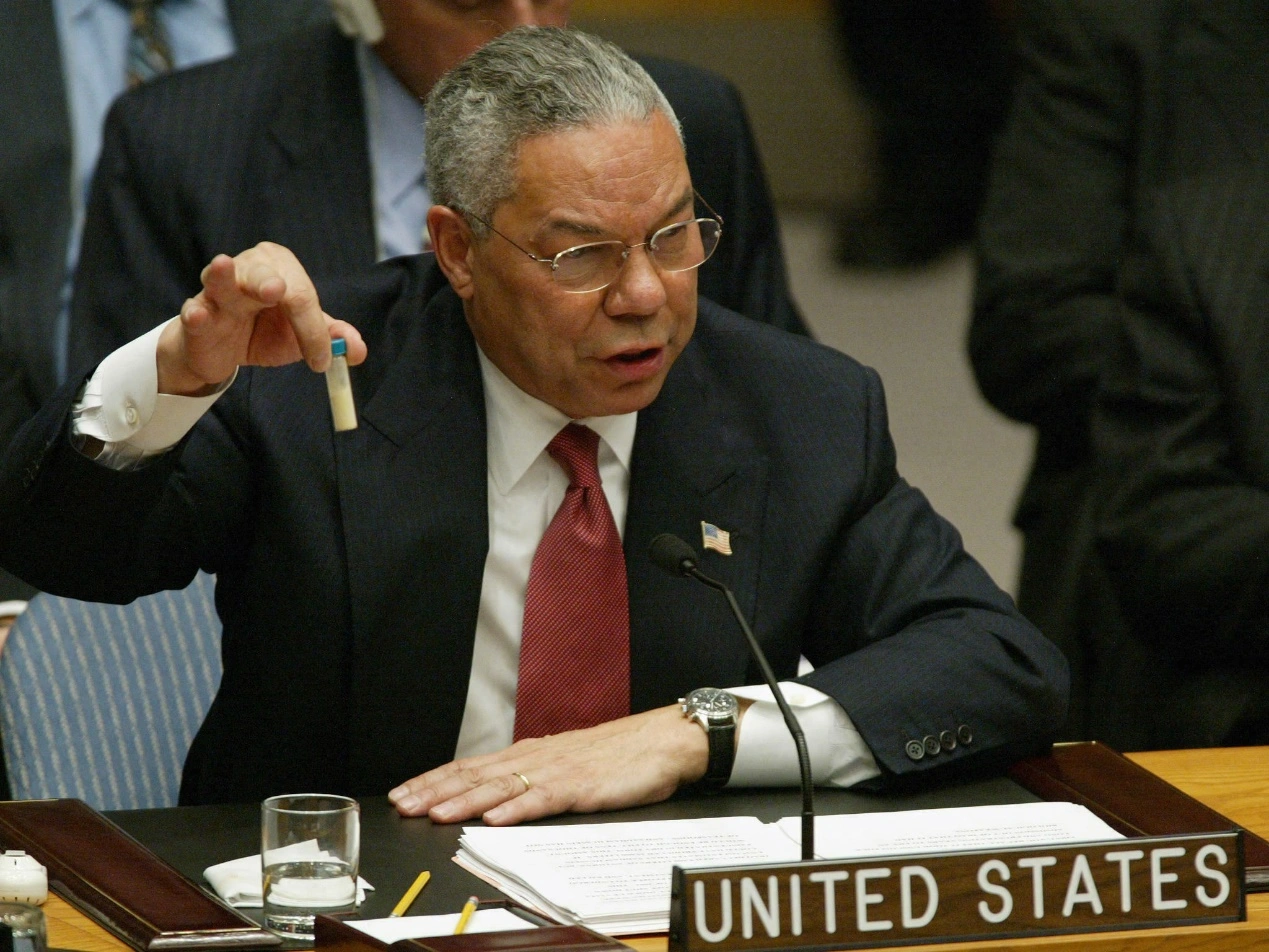 Colin Powell, who was famous for his U.N. Weapon of Mass Destruction in Iraq, later admitted that “was a great intelligence failure”.
Colin Powell, who was famous for his U.N. Weapon of Mass Destruction in Iraq, later admitted that “was a great intelligence failure”.
And the Iraq War was a huge shift in our Middle Eastern policy. It basically led to two decades of wars in the Middle East, destroyed numerous countries, killed and displaced many millions of Middle Easterners, and cost the American public, probably something like $7 trillion in spending. A policy of such enormous magnitude being based entirely on lies that were universally spread across our mainstream media, made me very, very suspicious of many other things moving forward.
So, the aftermath of the 9/11 attacks and the Iraq War was a huge turning point in my perspective.
And then I began looking into other issues. With the internet rapidly developing, with more and more websites and resources becoming available, I started to become very suspicious of many things from the past as well. If a decision as dramatic as going to war against Saddam Hussein, invading Iraq, and essentially trying to occupy the country, could be based on complete misrepresentations, what else had been distorted or manipulated? Then I wondered whether things from 40 years ago or 50 years ago or 80 years ago might be distorted in the same way.
The China Academy:
There are many alternative media popping up recently, they may have the similar idea with you. And since then you’ve been targeted by the mainstream media, by various organizations, such as ADL and SPLC, who have labeled you as far-right and anti-semantic. What’s your respond to these labels?
Ron Unz:
That’s really sort of nonsense. When I decided to launch the website, I decided to launch a website that would provide a convenient venue for perspectives that were excluded from the mainstream media, perspectives from all across the ideological spectrum, including left-wing, right-wing, libertarian, and so on. We’re very welcome to the views that simply could not find a place in the mainstream media on our website. So it certainly includes a lot of very right-wing individuals, but also includes a lot of very left-wing individuals or people whose views don’t really fit into one perspective or the other.
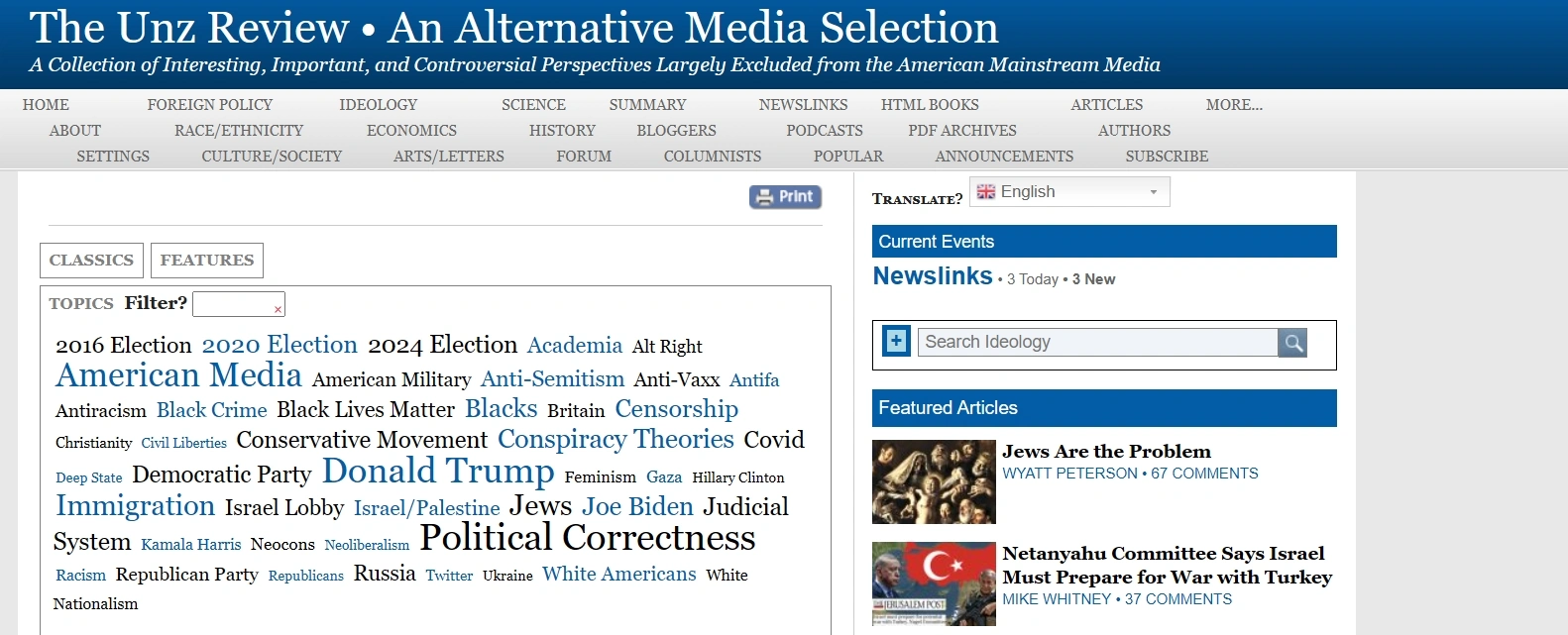 Screenshot of The Unz Review website’s Ideology Page
Screenshot of The Unz Review website’s Ideology Page
Another aspect of my sort of changing viewpoint on these things was around 2000 or 2001, I’d begun a new software project involved in trying to digitize the archives of America’s leading intellectual publications of the last 100 or 150 years. There’s the Atlantic Monthly, which is about 200 years old. There’s The Nation, The New Republic, The Harpers’ Monthly, and many dozens of other publications. Probably well over 150 of them, at one time or another, were America’s leading intellectual magazines. I ended up basically just digitizing them and making them available on a website.
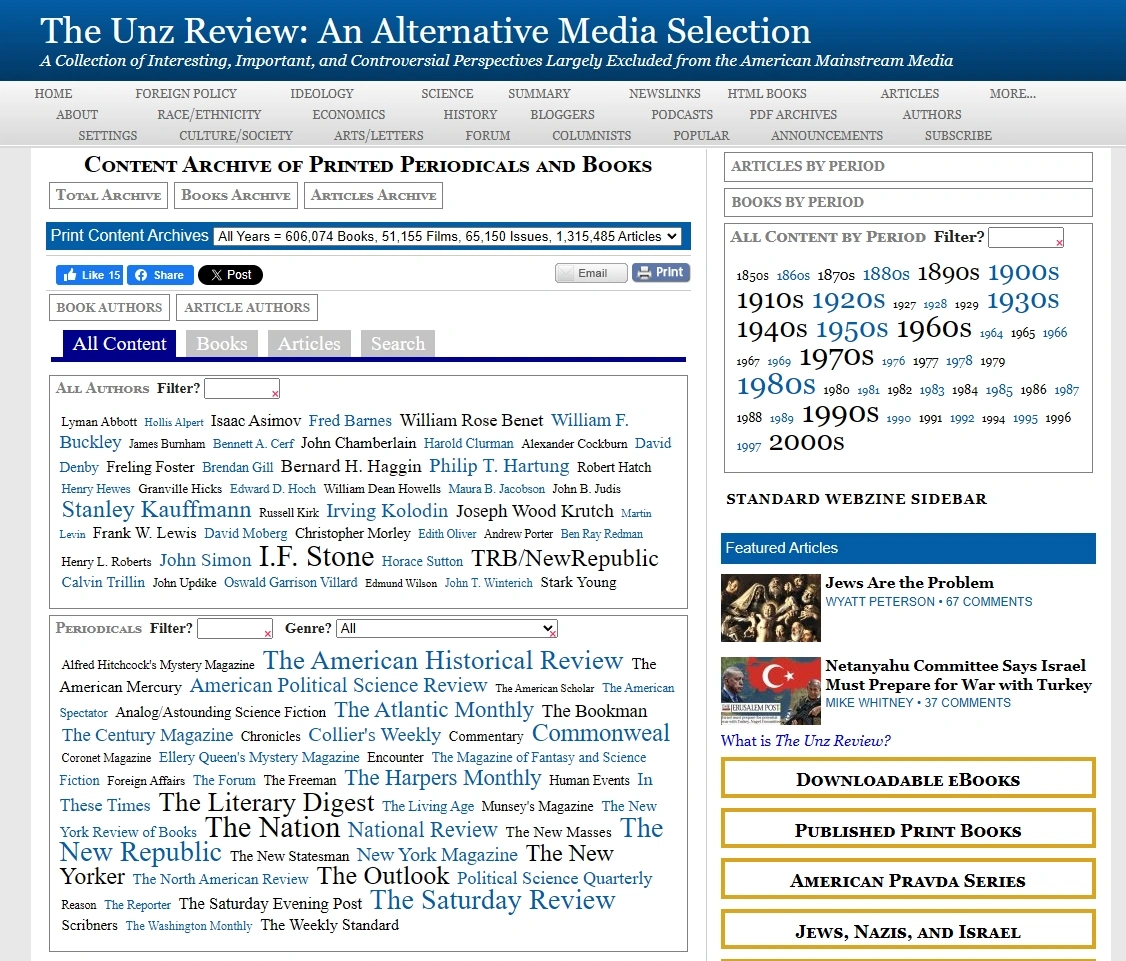 Screenshot of The Unz Review website’s PDF Archive Page
Screenshot of The Unz Review website’s PDF Archive Page
And as I went through and did the digitalization process, every now and then I would look through some of the articles they had or the table of contents. I gradually discovered that so many of the things in America’s past 50 years, 100 years, or 150 years ago, were very different than I had always assumed. Based on my college classes, based on the newspapers and magazines that I read, I’d always had a certain perspective on America’s history and Western history. When you actually read the publications, the leading publications of that era, you gain a very different perspective. In fact, some of the most influential figures in the American intellectual life of 100 years ago, had totally disappeared and forgotten, and I had never even heard of their names. So it’s just a very strange thing when you come across hundreds of articles written in these leading American publications by one of America’s most prominent intellectual figures, you’ve never heard of the individual. So things like that made me more and more suspicious of the sort of establishment narrative that I’d really gained from all the classes I took, all the textbooks I read and the daily newspapers I read.
Additionally, the most establishment, mainstream, respectable American publications of 60 or 70 years ago, could be considered ultra-fringe lunacy these days. For example, if you look at what the New York Times was writing 50 years ago or 100 years ago, those would be the views that today’s New York Times would regard as ultra-fringe lunacy. In other words, The New York Times 100 years ago and the New York Times today are saying such different things. They can’t both be correct and probably neither of them is entirely correct. The whole thing about it is the range of ideological perspectives that are allowed in today’s mainstream media is incredibly narrow compared to what it had been in the past.
So I thought it was important to provide a much broader range of ideas, which is basically what I did by allowing to integrating all these controversial things from individuals all across the ideological spectrum on my website.
And when you have organizations like the ADL or the SPLC or other groups denouncing what I’m publishing, what they’re basically saying is that the only ideas that should be permitted in American mainstream discourse are those considered respectable and acceptable today, not those from 20 or 30 years ago, let alone 100 years ago.
And the other funny thing about it is, as I started looking into the past of some of these organizations, for example, the past of the ADL, its original view was extremely different than I’d been aware of, and probably extremely different than most leaders of the ADL are aware of.
 Founded in 1913 by the Independent Order of B’nai B’rith, a Jewish service organization, ADL’s original goal was to nolle the contentious murder conviction of Atlanta B’nai B’rith President Leo Frank. Now, its goal has been expanded.
Founded in 1913 by the Independent Order of B’nai B’rith, a Jewish service organization, ADL’s original goal was to nolle the contentious murder conviction of Atlanta B’nai B’rith President Leo Frank. Now, its goal has been expanded.
Again, what happened in the past is very, very different from what Americans assume was the case.
The China Academy:
In your commentary regarding the former ambassador Chas W. Freeman Jr., you noted a narrative of a new cold war against China that has been promoted by mainstream media outlets. Can you explain how exactly the mainstream media advanced this agenda and escalated Washington’s motives to wage a new cold war?
Ron Unz:
America had been generally very friendly with China for decades after, for example, Nixon’s visit to China. Back then, we viewed China as a counterweight against the Soviet Union.
So China and the United States, in a sense, were quasi-allies in the last stage of the Cold War. And then when the Cold War ended, America stayed friendly with China for the years that went forward. At that time, China is regarded just as another country in the world. Ideological wars were over. The situation was very different than now.
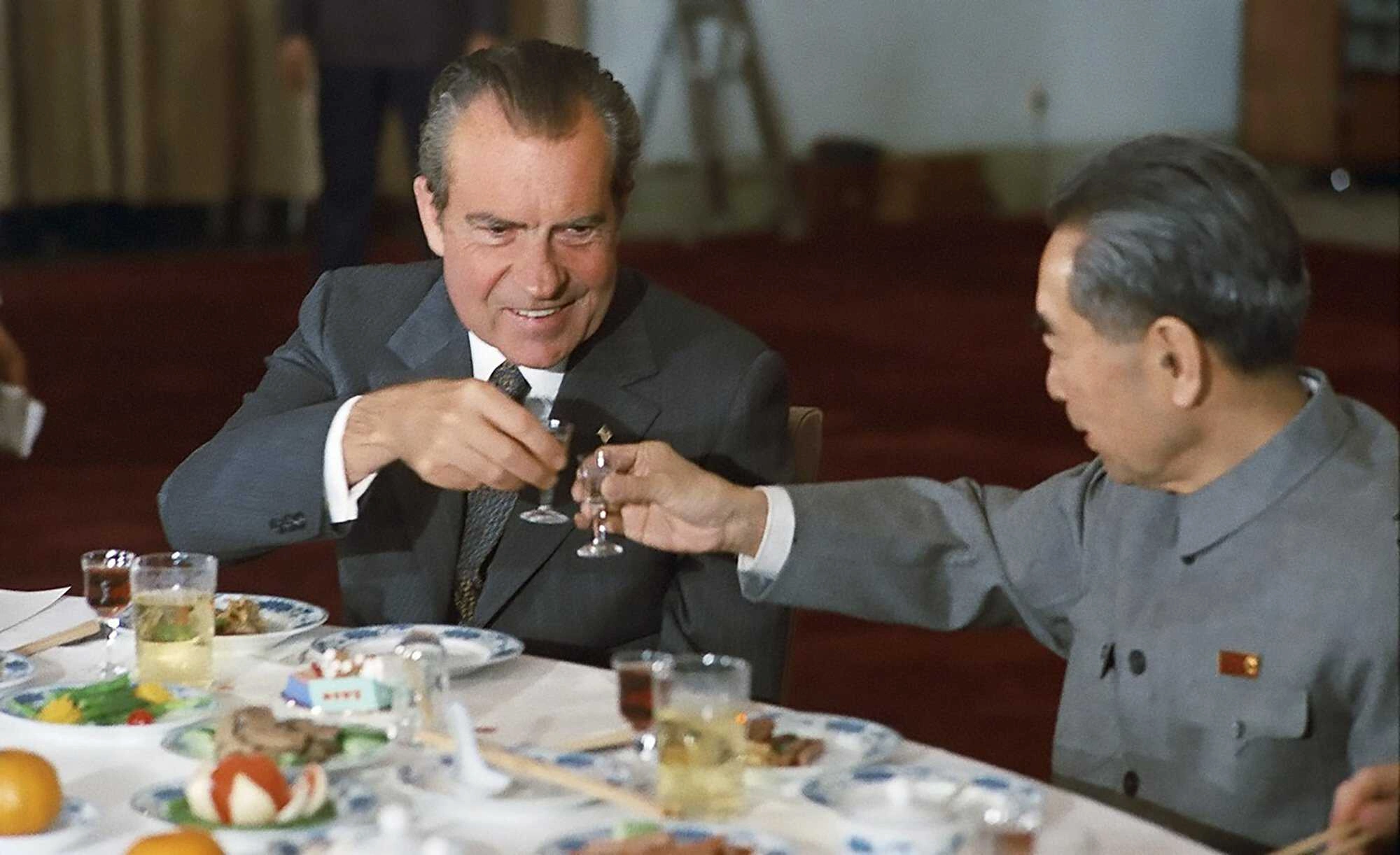 US President Richard Nixon and Chinese Premier Zhou Enlai toast, February 25, 1972
US President Richard Nixon and Chinese Premier Zhou Enlai toast, February 25, 1972
And then as China grew economically, it became very important for American corporations. Many leading American corporations were investing in China, making their products in China, selling their goods in China, and earning most of their profits in China. Apple also manufactured most of its iPhones in China and the Chinese bought the iPhones.
In other words, the United States and China maintain a highly interconnected economic relationship. Although, in certain areas, the U.S. has occasionally sought to distance itself from China on political, strategic, and military fronts—such as adjustments to its Taiwan policy during the Obama and Bush administrations.
However, probably about 10 years ago, when many of the American geopolitical figures in DC realized that China’s economic growth was continuing and that China basically was on the verge of surpassing America economically in terms of the real size of its economy in purchasing power parity (PPP).
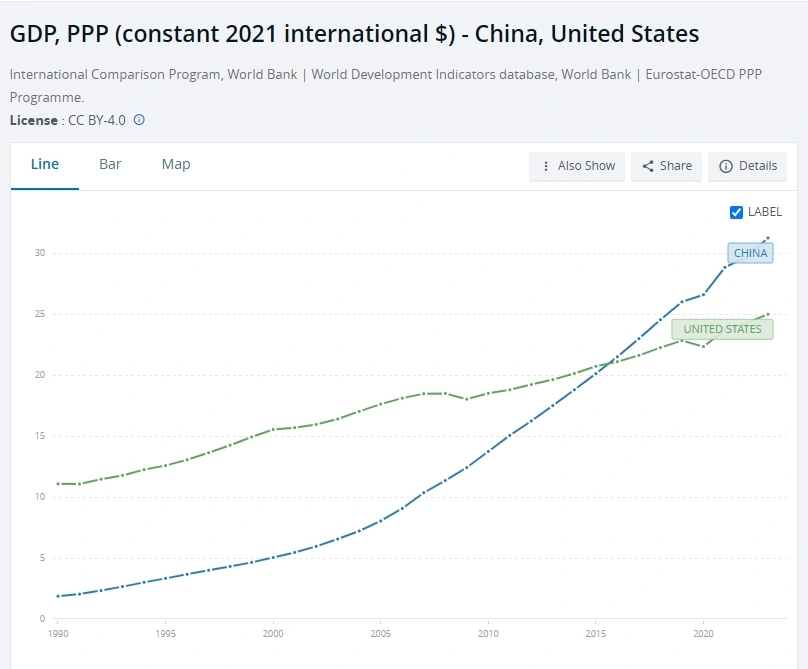
And China was continuing to grow so rapidly, and was not following the financialization route that America had followed, but following more industrial capitalism as someone like, for example, Michael Hudson is advocated. So there was a sense that there might be a clash with China down the road, with the talk of Thucydides Trap appearing, that there might be an inevitable conflict between a rising China and the United States for geopolitical control over the world.
Since that point, the American media has started becoming much more hostile towards China. The way it works is more and more negative. Every year, fewer and fewer positive things about China were emphasized. As a result, most Americans really developed a view of the Chinese economy having all sorts of problems, and doing very badly.
I would bet that if you ask most Americans, even most well-educated Americans, whether the American economy or the Chinese economy is growing more rapidly, they would all agree that the American economy was growing more rapidly than China, even though the truth is exactly on the other side.
Again, American media outlets have become increasingly propagandistic over the last decades, so you can’t trust almost anything you see in the New York Times, The Wall Street Journal or other leading publications. They’re just not as reliable as they used to be sometimes in the past.
By playing up all sorts of negative things toward China, they really caused more and more Americans to develop hostility toward China. And since America’s media dominates the entire world, they have caused much more hostility towards China not only among the American allies but also many third-world countries as well.
And that was obviously accentuated during the COVID-19 pandemic. America very falsely blamed COVID on China, claiming that it was leaked out of a Chinese lab and it might be a Chinese bioweapon. And because America dominates the world of propaganda, those propaganda stick tools did tremendous damage to China’s reputation around the world, among the ordinary American public. And that obviously would take a while to recover.
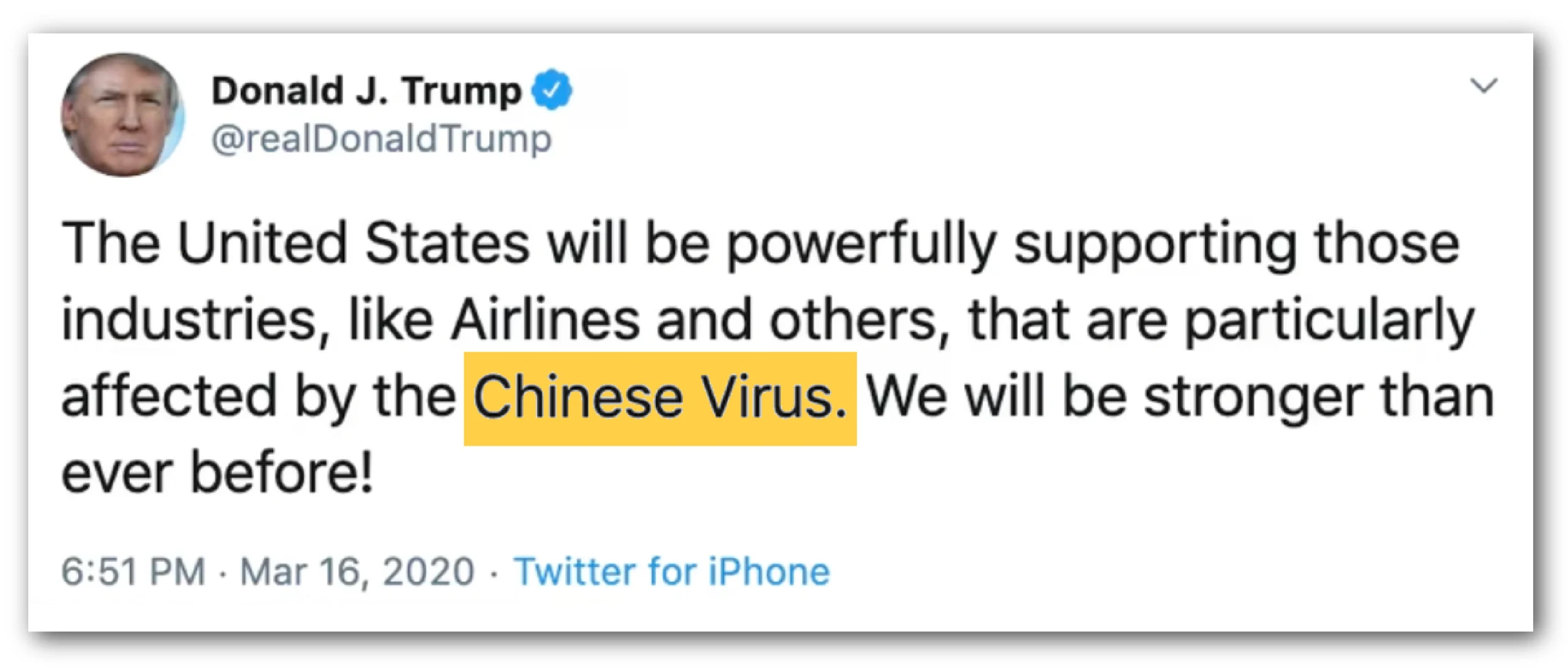 Trump’s Twitter post calling COVID-19 “the Chinese Virus” in 2020
Trump’s Twitter post calling COVID-19 “the Chinese Virus” in 2020
The truth is that China coped extremely well with the sudden outbreak of the pandemic, probably better than almost any country in the world. Though lockdowns were very unpopular, until the Omicron variant came along, they were successful in stamping out the virus. But America had the highest death rate among any developed country in the world, higher than any of the European countries.
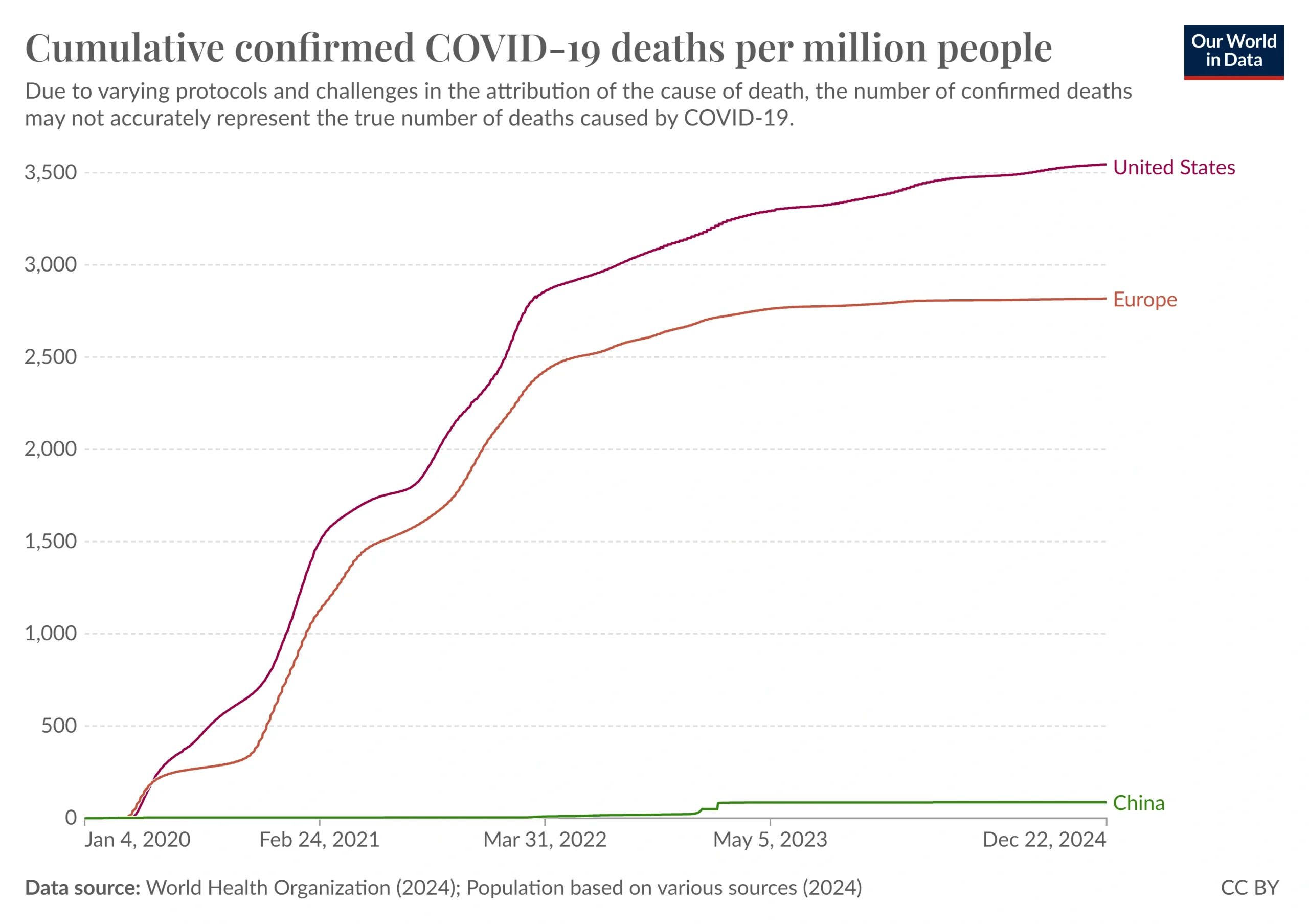
And we had a year or two of continuing lockdowns. While ordinary Chinese were going about their business in a very normal sort of way, Americans were confined to their homes for a year or even 2 years, with the intermittent lockdowns being both very ineffective and also very problematic for ordinary American daily life. So many of our businesses went under so much. Our economy was really severely damaged by the corporate lockdown.
Editor: Chang Zhangjin


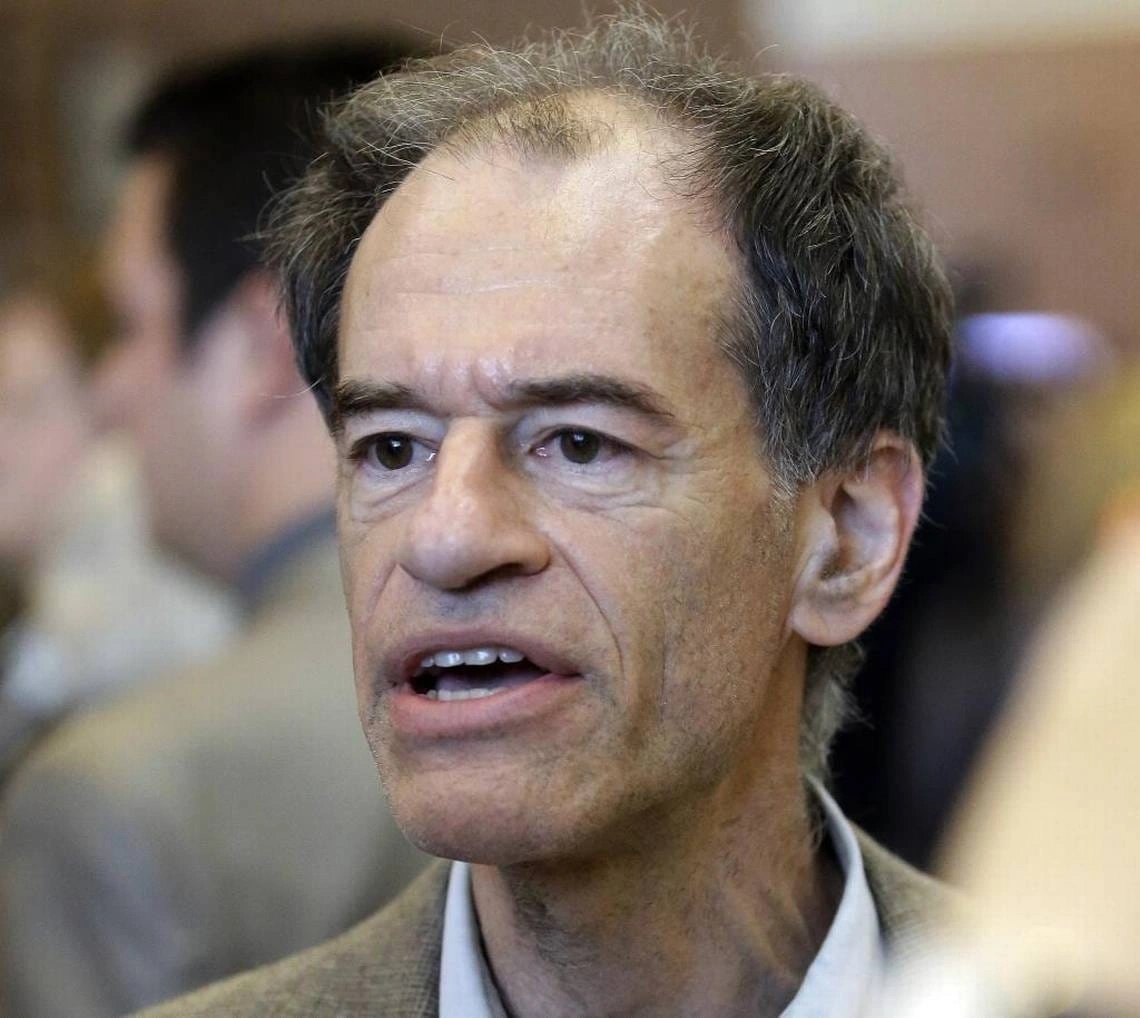
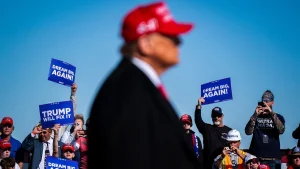

Anonymous
“anti-semantic” ? I’m guessing the author meant “anti-semitic”